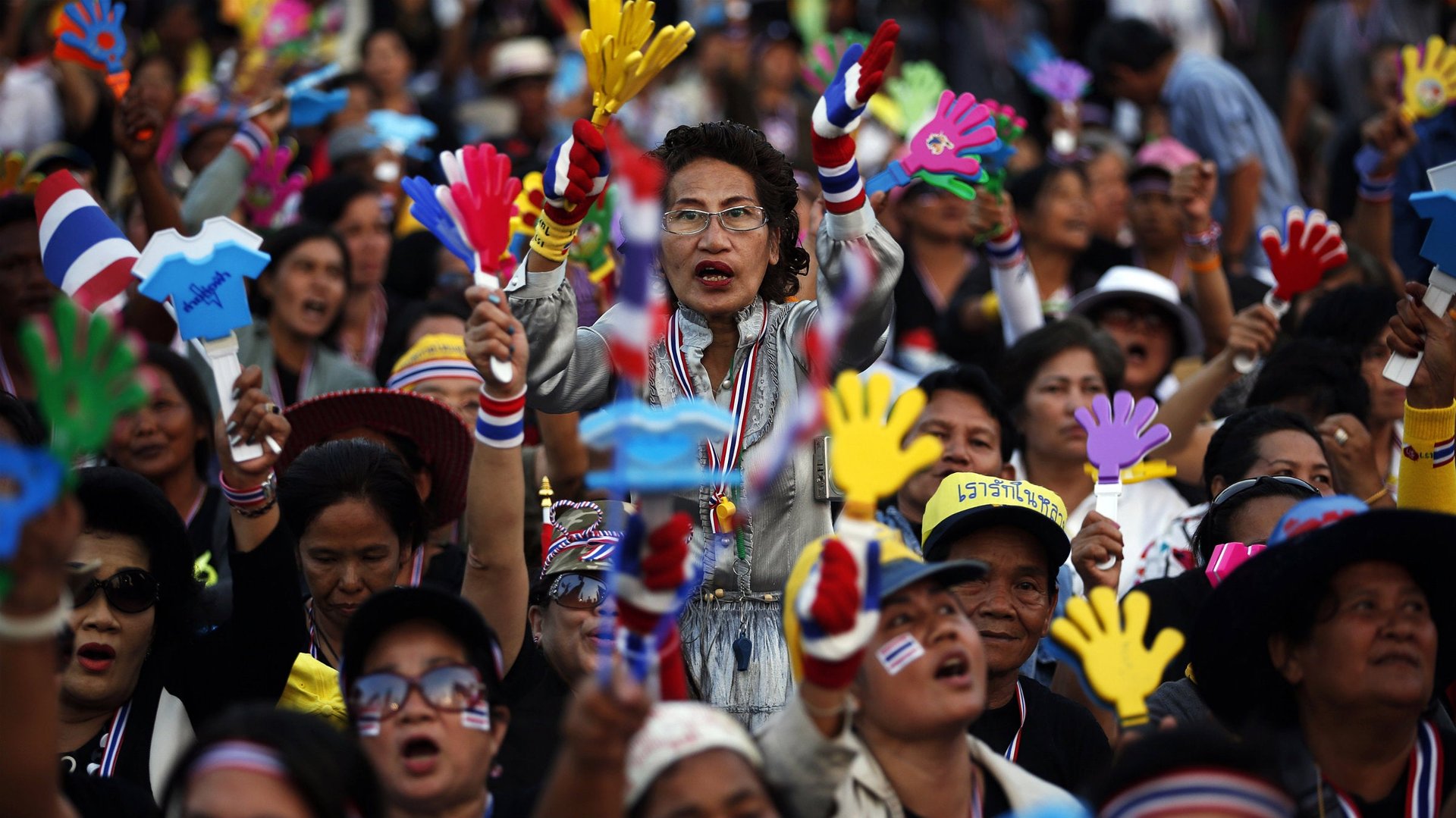As protests rage, Thailand admits its rice subsidy scheme was perhaps a terrible idea
Thailand’s ruinous rice subsidy program, which buys rice from farmers at rates 40% higher than the market, has been widely acknowledged as a disaster—by everyone, that is, except the Thai government. But in a new report by the International Monetary Fund, Thai officials finally admit that the populist policy may need fixing.


Thailand’s ruinous rice subsidy program, which buys rice from farmers at rates 40% higher than the market, has been widely acknowledged as a disaster—by everyone, that is, except the Thai government. But in a new report by the International Monetary Fund, Thai officials finally admit that the populist policy may need fixing.
The program was designed to curry favor among the country’s rural voters, but it has taken a heavy toll on rice exports and incurred massive public costs—a whopping $21 billion since 2011. Now government officials have “acknowledged the [IMF] staff’s concerns about the effectiveness and transparency of the scheme, and suggested that a reduction in the pledging prices or limits on the amount of purchase might be needed to ensure the sustainability of the policy.”
The government’s primary goal is to keep rural Thais, who form the ruling party’s base of power, happy. Indeed, the country is being rocked by huge protests from supporters of the opposition party, who are furious about Prime Minister Yingluck Shinawatra’s now-doomed attempt to pass a political amnesty bill.
“Rather than waiting until this group of people suffer to the level that would cause them to come out on to the street, it’s the government’s job to take care of them,” Thailand finance minister Kittiratt Na-Ranongtold told the Financial Times (paywall) last week, speaking of the farmers.
However, there’s a much easier way to accomplish the same goal: Simply cut the poor voters a government check. In the International Monetary Fund’s annual review, it said its staff “sees clear merit in replacing the rice pledging scheme with budgetary transfers targeted at low-income agricultural households.” Such a move would give farmers the same effective benefit, but without distorting the rice market or leaving the government with massive stockpiles of unsellable grain.
But with the current upheaval in Thailand—opposition leaders have called for a three-day general strike, prompting fears of violent clashes that have plagued the country in the past—there isn’t much hope that the government will risk alienating rural voters with a shake-up to the subsidy program. The first step, though, is admitting you have a problem.